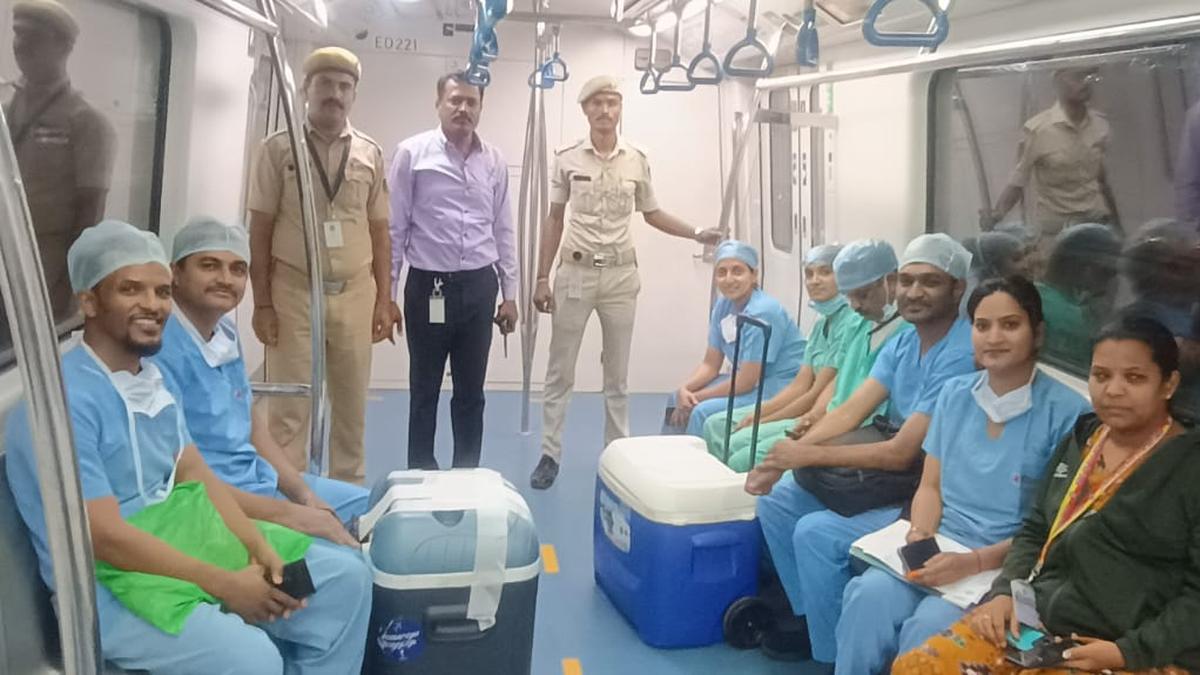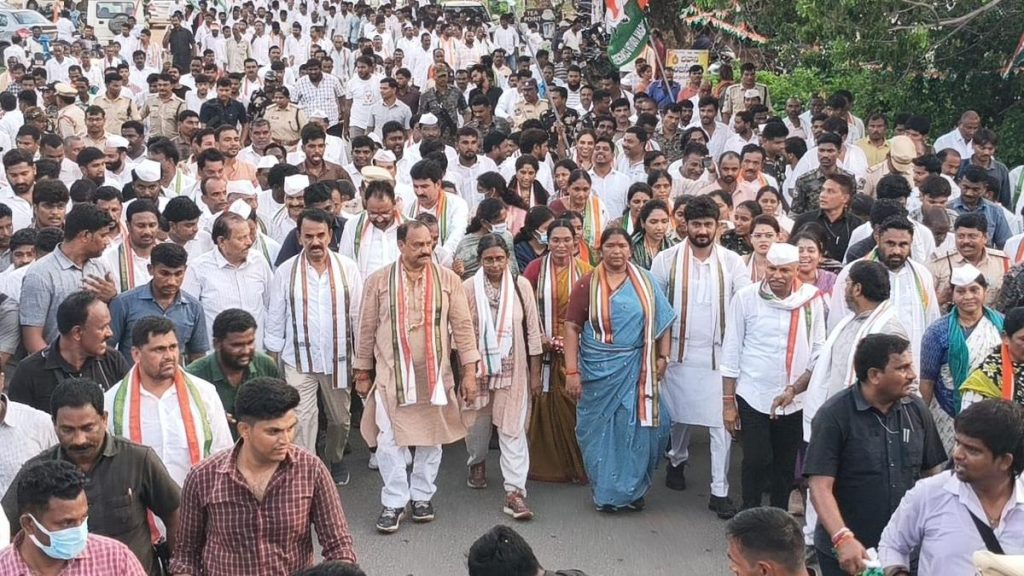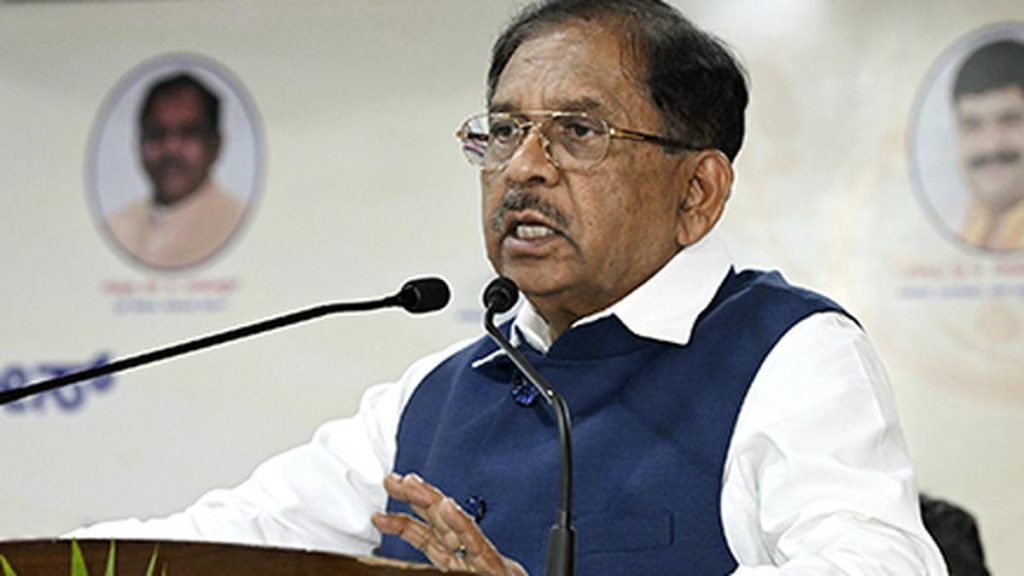Now Reading: Bengaluru Metro Aids Organ Transport for Life-Saving Transplant
-
01
Bengaluru Metro Aids Organ Transport for Life-Saving Transplant
Bengaluru Metro Aids Organ Transport for Life-Saving Transplant

Quick Summary
- For the first time, Bengaluru’s Namma Metro successfully facilitated organ transportation via metro train on Friday.
- A human liver was transported from Vydehi Hospital, Whitefield, to Sparsh Hospital, Rajarajeshwari Nagar for an urgent transplant.
- The journey involved an ambulance and a metro train. Green corridors were created to expedite movement from hospital to metro station and vice versa.
- The 31-km journey via metro took less than an hour compared to over three hours by road due to heavy weekend traffic.
- The liver was donated by a 24-year-old accident victim. It was urgently needed for a young male patient suffering from hepatitis-related liver failure at Sparsh Hospital.
- BMRCL followed Ministry of Housing and urban Affairs (MoHUA) guidelines in conducting the operation seamlessly with security checks and coordination at stations.
- Senior consultant Mahesh Gopasetty emphasized that road transport could have jeopardized the critical organ delivery due to time constraints.
- The recipient underwent accomplished transplant surgery overnight and is currently stable in ICU.
Indian Opinion Analysis
The use of Bengaluru’s Namma Metro for transporting organs highlights innovation in urban infrastructure management under life-critical circumstances. This marks only the second instance of such transportation via public transit in India, demonstrating how metropolitan systems can adapt for emergency medical purposes when regular roads are congested. By considerably reducing transit time during rush-hour traffic, this approach underscores how integrating health-focused protocols into urban planning can save lives.
This achievement also stresses the importance of collaborations – between healthcare teams and infrastructure authorities like BMRCL – as essential elements in tackling logistical challenges faced during organ transplantation procedures. As India continues its efforts toward better organ donation awareness and medical connectivity through initiatives like SOTTO Karnataka’s network support, replicating this model across other cities equipped with efficient mass transit systems could transform healthcare delivery standards nationwide.
For more details: Read here
























